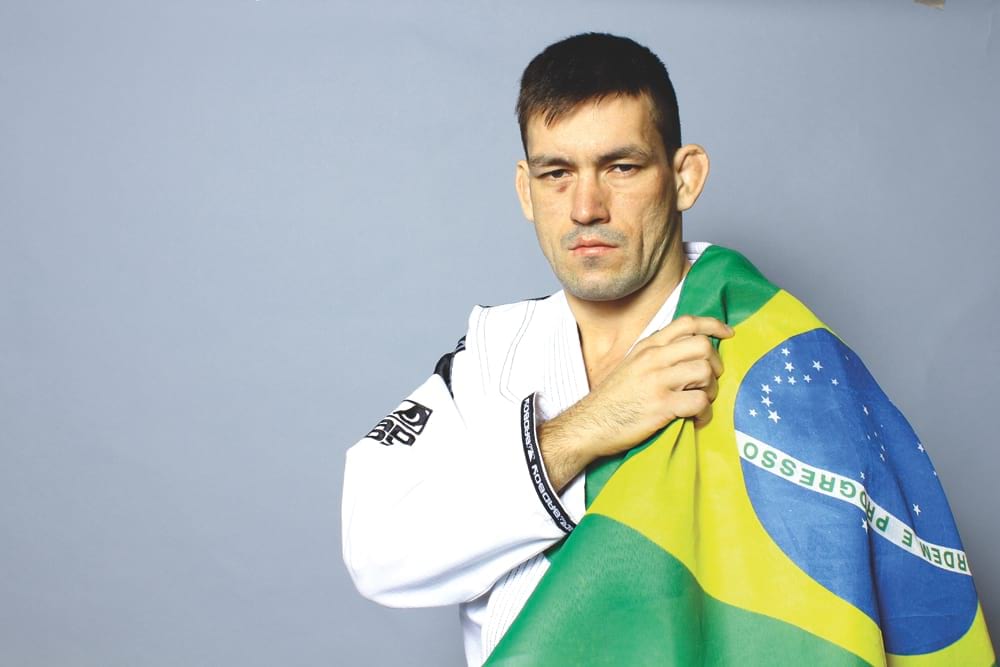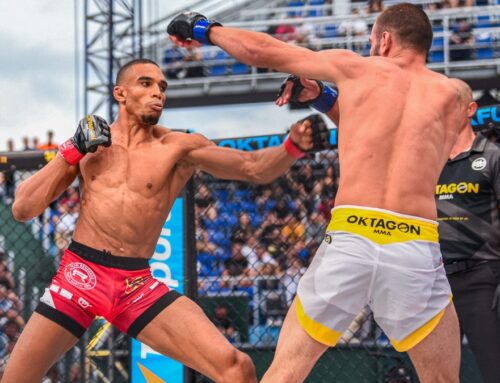Some say the way a judge calls a fight is often influenced by what it is they like to see from a fight. A judge with a fondness for striking, for example, is liable to side with the fighter who has the greater success on his feet, whereas a judge partial to a grappling match might award more brownie points to a grappler. It’s one of the many intangibles of mixed martial arts. It’s the cause of much debate.
Tonight (May 13) in Dallas, Texas, we witnessed a judge’s worst nightmare in the form of a welterweight tussle between Demian Maia and Jorge Masvidal. The fight itself was decent enough, featuring momentum swings which kept things interesting, but the eventual verdict, as outlined, hinged entirely on the personal preferences of the three judges.
By way of an explanation, both fighters had success in their respective areas of expertise – Maia on the ground, Masvidal in the stand-up – but never enough to sway the overall narrative completely in their favour. They were equally productive and, at times, equally impotent. It was that kind of fight; Masvidal landed leg kicks and jabs, Maia hung from Masvidal like a back-pack and explored but reneged on multiple choke options.
Ultimately, Maia got the nod by scores of 29-28, 29-28 and 28-29, scores that say everything about a fight that went everywhere and nowhere, a fight that threatened to explode yet lacked anything particularly decisive or emphatic.
In hindsight, the pattern was set the moment Maia got a takedown early in round one, secured Masvidal with a body triangle and then rode his back for the best part of four minutes, teasing a choke, yet, in reality, falling way short of locking it in. In fact, Masvidal, whose jiu-jitsu defence was a revelation, managed to shake Maia off in the final thirty seconds, ground him, and then land punches on his face as Maia scrambled for the control he’d all of a sudden lost.
The three judges scratched their heads. Did Maia’s sustained period of positional dominance – when attached to Masvidal’s back – win him the round despite very little damage being done? Or, did Masvidal’s last-gasp salvo, a period in which some damage was done, steal the round at the eleventh hour?
That was just the start. The plot would thicken in rounds two and three as Masvidal’s impressive sprawl came into play and shut down a lot of what Maia wanted to achieve. This added a new layer: Maia was now less willing to commit to takedowns, just as Masvidal was unwilling to fully commit to strikes on their feet. Both had an awareness of the other’s strong suit. Too much awareness, if anything.
In the end, Maia, 39, was content to slide under and get half-guard, while Masvidal, 32, made his mark via numerous inside leg-kicks, all of which busted up Maia’s lead leg and caused him to move gingerly for much of the contest. Small victories, though. Half-hearted submission attempts from Maia, half-hearted attempts to get a knockout from Masvidal. Both, it seemed, were fearful of what would happen should they fully commit.
That Maia, 25-6, eventually received the nod is testament to his greater Octagon control, one assumes, but there can be little doubt his impending UFC welterweight title shot against Tyron Woodley – something all but confirmed by Dana White in the aftermath – is the result of seven straight wins rather than what he achieved tonight at UFC 211.






